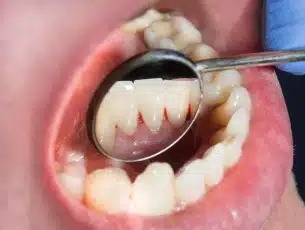When considering dental implants as a reliable solution for missing teeth, patients often focus solely on the surgical procedure itself. Yet, the long-term success of dental implants depends significantly on consistent oral hygiene, professional care, and maintenance—an area where dental hygienists play a pivotal role. Their expertise goes beyond cleaning teeth; they are essential partners in maintaining the health and longevity of dental implants.
The Critical Connection Between Dental Hygiene and Implants
Dental implants are designed to mimic the structure and function of natural teeth. While the materials used—such as titanium and ceramic—do not decay, the surrounding gum and bone tissue remain susceptible to infection and disease if proper care is neglected.
Why Oral Hygiene Matters for Implants
- Prevents peri-implantitis: A serious inflammatory condition affecting the gum and bone around implants.
- Maintains tissue health: Ensures gums remain firm and healthy, providing support for the implant.
- Supports bone stability: Healthy gums and bone prevent implant loosening or failure.
Neglecting these aspects can lead to implant failure, making regular professional hygiene appointments as important as the initial surgical placement.
What a Dental Hygienist Does for Implant Care
A dental hygienist is instrumental in maintaining the health of both natural teeth and implants. Their responsibilities extend into several critical areas:
- Regular Professional Cleanings: Removing plaque and calculus deposits that can form on implant surfaces.
- Monitoring Gum Health: Checking for signs of inflammation or infection around implants.
- Plaque and Calculus Removal: Using specialised tools to clean implant components without damaging them.
Dental hygienists work closely with implant dentists, ensuring every aspect of a patient's oral health is managed effectively post-implant placement.
Pre-Implant Hygiene Preparations
Before dental implants are placed, the mouth must be in optimal health. Dental hygienists contribute to this preparatory stage by:
- Conducting Oral Health Assessments: Identifying any existing gum disease or dental issues that need addressing.
- Providing Pre-Implant Cleanings: Ensuring a clean environment for the implant procedure.
- Educating Patients on Pre-Surgical Care: Advising on oral care routines that promote healing and readiness.
These preparatory steps reduce the risk of complications during and after implant surgery.
Post-Implant Maintenance by Dental Hygienists
Once implants are in place, dental hygienists become even more crucial. Their post-implant care routines include:
- Specialised Cleaning Techniques: Using implant-safe instruments to clean abutments, crowns, and surrounding tissues.
- Monitoring Peri-Implant Tissues: Checking the health of gums and bone surrounding the implant.
- Detecting Early Signs of Peri-Implantitis: Spotting problems before they escalate into more serious conditions.
Dental hygienists use soft-tipped scalers and other non-metal tools that prevent scratching implant surfaces while effectively removing harmful deposits.
Tools and Techniques Used by Dental Hygienists for Implants
Maintaining dental implants requires tools and methods that differ from standard dental cleaning procedures:
| Tool/Technique | Purpose |
| Plastic/Carbon Scalers | Safely remove plaque without scratching |
| Ultrasonic Scalers (Modified) | Clean larger deposits using gentle vibrations |
| Interdental Brushes | Clean spaces around implant fixtures |
| Floss Threaders | Aid flossing under implant-supported bridges |
| Antimicrobial Rinses | Reduce bacterial load around implants |
A skilled dental hygienist Wimbledon will be trained to use these tools specifically on implant cases, ensuring effective yet gentle care.
Common Mistakes Patients Make & How Hygienists Address Them
Many patients unknowingly compromise their dental implants by making basic hygiene errors. Some of the most frequent mistakes include:
- Poor Flossing Habits: Not flossing around implant-supported teeth, leading to plaque build-up.
- Missing Hygiene Appointments: Skipping professional cleanings, increasing the risk of infection.
- Misuse of Oral Care Products: Using abrasive toothpaste or hard-bristle brushes that damage implant components.
Dental hygienists not only correct these issues during appointments but also provide ongoing guidance to help patients maintain optimal implant care at home.
How Often You Should Visit a Dental Hygienist for Implants
The frequency of professional cleaning appointments can vary based on individual needs, but general guidelines include:
- Every 3 to 6 Months: Standard recommendation for patients with dental implants.
- More Frequent Visits: For patients with a history of gum disease, smoking habits, or medical conditions that affect oral health.
Maintaining this schedule ensures any emerging issues are caught early, reducing the risk of implant failure.
Importance of Patient Education by Dental Hygienists
Beyond cleaning, dental hygienists serve as educators. They play a vital role in teaching patients how to care for their implants correctly:
- Correct Cleaning Techniques: Demonstrating how to use interdental brushes, floss threaders, and mouth rinses.
- Product Recommendations: Advising on implant-friendly toothpaste and brushes.
- Habit Monitoring: Helping patients identify bad habits that may harm implants, such as clenching or smoking.
Through tailored advice, a dental hygienist in Wimbledon helps patients take ownership of their oral health, ensuring their dental implants Wimbledon remain functional and attractive for years to come.
Summary Table: Dental Hygienist Responsibilities for Implants
| Stage | Dental Hygienist Role |
| Pre-Implant | Oral health assessment, pre-surgical cleaning |
| Immediate Post-Implant | Specialised cleaning, tissue monitoring |
| Long-Term Maintenance | Regular cleanings, patient education, monitoring |
Conclusion
Dental implants may be a permanent solution to missing teeth, but their long-term success depends heavily on professional maintenance and patient responsibility. The role of a dental hygienist in Wimbledon extends far beyond routine cleaning; it is about ensuring implant health through preventive care, professional techniques, and patient education.
For anyone considering or already living with dental implants, partnering with a qualified dental hygienist is essential. With their help, you can expect not only a healthier smile but also a lasting return on your investment in dental implants.
For professional implant care that prioritises both patient comfort and successful outcomes, The Dental Lounges - Wimbledon stands ready to assist with expert dental hygienist services designed to support every stage of your dental implant journey.



